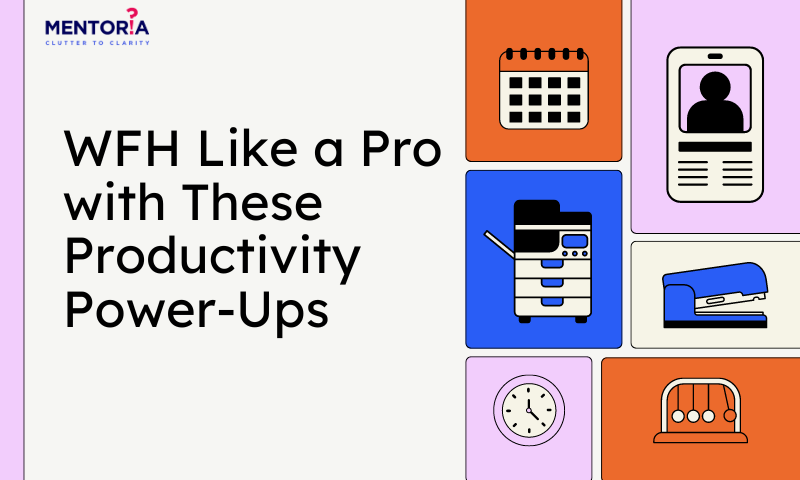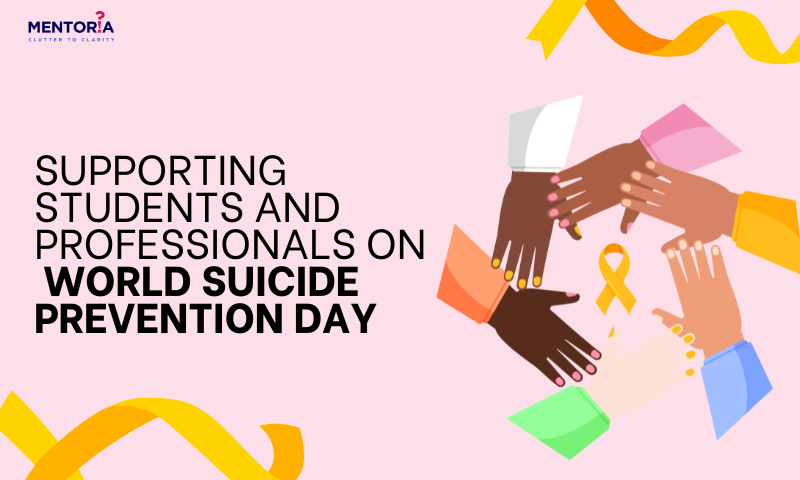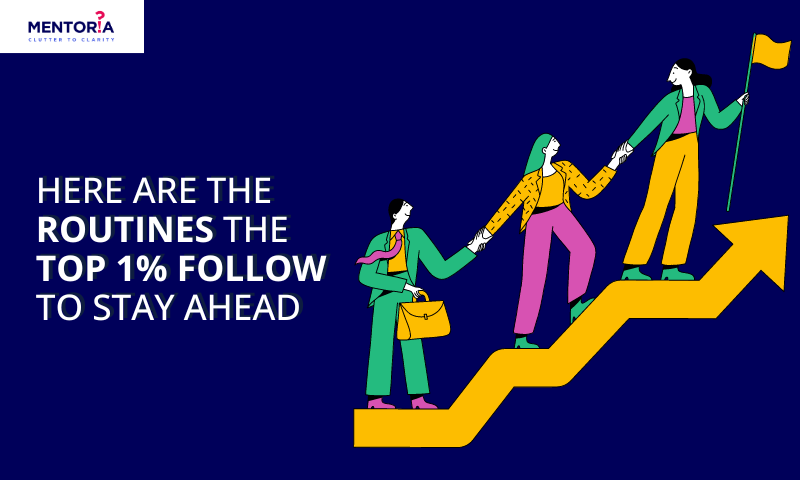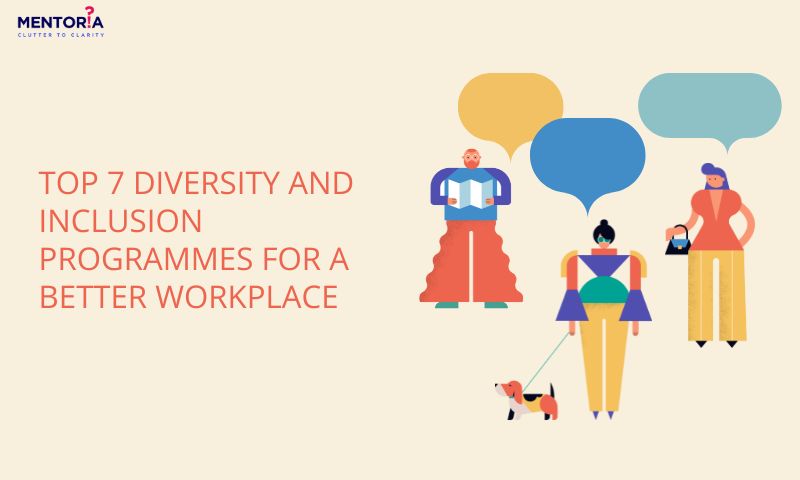The Hitch In Diversity Programmes: Why The Status Quo Isn’t Working
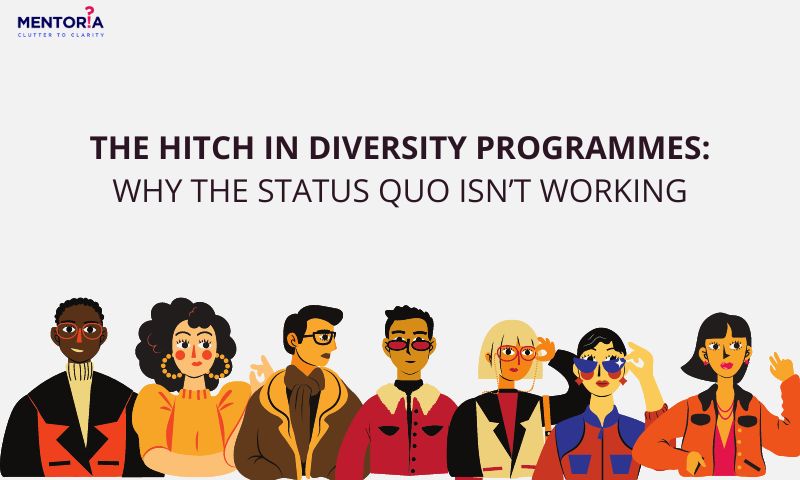
In the corporate landscape, the search for diversity has often been an uphill issue. Despite well-intentioned efforts and the implementation of various programmes, the results have been far from satisfactory. But why are diversity programmes falling short of their objectives, and what can organisations do differently? Let’s delve into the nuances of this challenge and explore the inherent flaws in conventional approaches.
Why Are Diversity Programmes Falling Short Of Their Objectives?
The Illusion Of Diversity Training
Diversity training has become a universal response to workplace bias, but its impact appears to be disappointingly short-lived. Despite the substantial resources invested in these programmes, research spanning decades has shown that the positive effects of diversity training often dwindle within a matter of days. Even worse, some studies indicate that such training may inadvertently activate bias or lead to backlash. Astonishingly, nearly half of midsize companies and almost all Fortune 500 companies continue to rely on this approach, perpetuating a cycle of limited efficacy.
The crux of the issue lies in the methodology. Many diversity training programmes employ negative messages, emphasising legal consequences and massive settlements as a deterrent. However, threats and punitive measures tend to alienate rather than inspire change. Voluntary training, on the other hand, has shown more promise, fostering a sense of individual commitment to diversity goals. The takeaway: a shift in approach from coercion to engagement may be the key to unlocking lasting change.
Undermining Diversity In The Name Of Fairness
Mandatory hiring tests, intended to ensure fairness, paradoxically contribute to decreased diversity. Despite their purported objectivity, these tests can be selectively applied and, in some cases, ignored altogether. The historical context echoes a disconcerting pattern, reminiscent of discriminatory practices in the 1950s where certain groups were exempt from tests, perpetuating inequality.
This isn’t just a matter of overlooking test results; studies reveal a distinct bias in the interpretation of outcomes. In sectors like finance and consulting, where problem-solving tests are embedded in interviews, the scrutiny intensifies when women and minorities perform less stellar than their white male counterparts. Instead of levelling the playing field, these tests amplify bias. A reevaluation of the role of tests in hiring processes is paramount, with a focus on equalising opportunities rather than inadvertently favouring certain demographics.
Performance Ratings
Performance ratings, ostensibly designed to ensure equitable pay and promotions, fall short in promoting diversity. Over 90% of large companies rely on annual performance evaluations, with the aim of preventing biassed treatment and offering legal protection. However, studies consistently show that women and minorities receive lower ratings than their white male counterparts. This discrepancy casts a shadow on the effectiveness of performance ratings in fostering inclusivity.
Moreover, some managers, aiming to avoid conflicts or keep their options open, inflate everyone’s ratings, rendering the system ineffective. The consequences are evident, with the introduction of performance ratings having no discernible effect on minority representation in management. A reimagining of performance evaluation systems is imperative to address the inherent biases that hinder true diversity.
Grievance Procedures
The establishment of formal grievance procedures, ostensibly created to identify and rectify biassed practices, often backfires. A survey of discrimination complaints filed with the Equal Employment Opportunity Commission in 2015 revealed that 45% included charges of retaliation. This alarming statistic implies that those who report discrimination often face consequences such as ridicule or demotion. Paradoxically, the presence of grievance systems can lead to a false sense of security, causing managers to drop their guard and let bias influence decisions.
When companies adopt grievance systems, the unintended consequence is a decline in the representation of women and all minority groups except Hispanic men. The emphasis on punitive measures may discourage employees from reporting discrimination, perpetuating an environment where issues go unaddressed. A nuanced, flexible approach that combines formal processes with informal mediation could be a more effective strategy.
Tools For Getting Managers On Board
If these popular solutions backfire, then what can employers do instead to promote diversity? They apply these basic principles: engage managers in solving the problem, mentoring them, expose them to people from different groups, and encourage social accountability for change.
The Power Of Cognitive Dissonance
The fundamental flaw in many diversity programmes lies in their top-down, rule-based approach, which tends to breed resistance rather than acceptance. Engaging managers in the process of fostering diversity, rather than enforcing compliance, has proven to be a more effective strategy. Cognitive dissonance, the discomfort arising from inconsistency between beliefs and behaviour, can be harnessed positively by encouraging managers to actively contribute to diversity initiatives.
College recruitment programmes targeting women and minorities exemplify this approach. Managers who voluntarily participate in these programmes, tasked with identifying promising candidates from underrepresented groups, experience a shift in their attitudes. The voluntary nature of their involvement and the positive message—“Help us find a greater variety of promising employees!”—creates a sense of ownership and commitment. The result? A significant increase in the representation of women and minorities in management roles over a five-year period.
Mentoring
Mentoring programmes present a powerful antidote to biases that often permeate hiring and promotion decisions. By fostering one-on-one relationships between seasoned executives and emerging talents, mentoring creates a symbiotic dynamic that challenges preconceived notions. This system not only provides deserving candidates with opportunities but also alters the perspectives of mentors, reinforcing the belief that their protégés truly merit these advancements.
While white men often find mentors organically, women and minorities, in some cases, require formal programmes to facilitate these crucial connections. The structured nature of mentoring initiatives, coupled with the mutual benefits they yield, contributes to increased diversity in managerial positions. On average, mentoring programmes result in a noteworthy 9% to 24% boost in the representation of various demographic groups, signalling a potential turning point in dismantling entrenched biases.
Increasing Contact
The age-old adage, “familiarity breeds contempt,” doesn’t necessarily hold true when it comes to diversity. Evidence suggests that increased contact among different groups can dismantle stereotypes and foster more equitable hiring and promotion practices. Self-managed teams, a model where individuals from diverse roles collaborate on projects as equals, create opportunities for intergroup interactions. This kind of collaboration breaks down existing barriers, providing fertile ground for dispelling preconceived notions.
Cross-training, another effective strategy, involves rotating management trainees through various departments, exposing them to different facets of the organisation. This not only broadens the perspectives of the trainees but also ensures that department heads encounter a more diverse pool of talent. The outcome? A 3% to 7% increase in the representation of women and minority groups in management over five years. These tangible results underline the potency of increased contact as a strategy for promoting diversity in the workplace.
Social Accountability
Encouraging social accountability represents a multifaceted approach to fostering diversity. Diversity task forces, composed of executives and department heads, serve as catalysts for change by scrutinising diversity metrics and formulating actionable solutions. The very existence of these task forces prompts managers to ponder the optics of their decisions, infusing an element of accountability into their thought processes.
Deloitte’s exemplary case study illustrates the transformative impact of social accountability. By transparently monitoring the career progress of female associates and setting goals to address local issues, Deloitte witnessed a significant reduction in turnover among women and a notable increase in the proportion of female partners. The combination of internal monitoring, external advisory councils, and individual performance metrics acted as a three-pronged instrument, driving change at multiple levels.
Rethinking Diversity In The Workplace
As companies navigate the complex landscape of workplace diversity, a reevaluation of conventional strategies is imperative. The shortcomings of diversity training, job tests, performance ratings, and grievance procedures necessitate a paradigm shift towards more engaging and impactful approaches. By actively involving managers, fostering mentorship, increasing intergroup contact, and instilling a sense of social accountability, organisations can break free from the inertia that has impeded progress. It’s time to discard outdated practices and usher in an era where diversity is not just a checkbox but an integral part of organisational DNA.
Ready to navigate the complexities of workplace diversity? With Mentoria, you gain access to personalised strategies aligned with your career aspirations. Our career mentors are here to guide you, helping you discover the right path. Kick-start your journey with Mentoria’s career guidance programme, offering a tailored approach from 850+ courses and 12,000+ careers. Speak to our mentors, choose a guidance plan that suits your needs, and embark on a path that brings out the best in you. Your future, your choice—unlock your potential with Mentoria.





